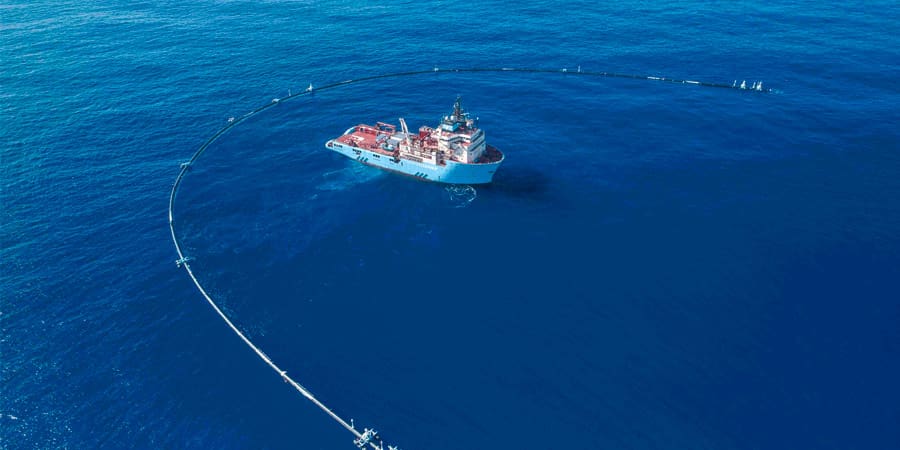Ocean Cleanup has designed a $20 million system to clean up the ocean pollution in the Pacific. The system was deployed September 8 from the San Francisco Bay to undergo several weeks of testing before being deployed to its main clean up area which is supposed to happen sometime in mid-October, after the testing has been completed.
A huge effort has been started to clean the trash out of an area called the Great Pacific Garbage Patch. The Patch was created when trash was collected and trapped in a circulating ocean current, called a “gyre”, and can be found about halfway between California and Hawaii.
It was discovered in the mid-1980’s and is so big it can be detected from space, covering approximately 995,000 square miles. The Patch consists of approximately 1.8 trillion pieces of debris that are trapped in a circulating ocean current, which prevents the garbage from disbursing. This becomes a benefit for the clean up system created by Ocean Cleanup.
Ocean Cleanup is a nonprofit company, founded in 2013 by an 18-year-old Dutch inventor named Boyan Slat. They are backed by some big tech companies including Peter Thiel, the co-founder of PayPal and Marc Benioff, the founder, chairman and co-CEO of Salesforce. The company states that building a business isn’t the primary goal – the primary goal is to clean the oceans.
Ocean Cleanup has designed a $20 million system to clean up the ocean pollution in the Pacific. The system was deployed September 8 from the San Francisco Bay to undergo several weeks of testing before being deployed to its main clean up area which is supposed to happen sometime in mid-October, after the testing has been completed.
The system is basically a floating boom system, which will be towed 1400 miles out to the Pacific Patch after the testing has concluded. It is designed so that the booms will drift along with the local currents, which in turn will create a U shape out of the booms, gathering or trapping the trash within this U formation.
The booms will also have about 10 foot of netting which hangs below them to catch any bits of trash floating below the surface. It is hoped that this 10-foot netting is not so deep that ocean life can and will be able to swim below it and not be caught in the nets; with the netting still being able to gather the plastic.
But that has yet to be seen. Each boom is supposed to trap up to 150,000 pounds of plastic pollution per year. Once the booms have been filled up, they will be brought back to land so the plastic can be recycled. The goal is to clean up half of the Garbage Patch in the first five years.
This is the first system of its kind and there are many things that have yet to be proven. No one has ever attempted a feat of this magnitude to clean our oceans. Once the first booms have been set out and it is seen how they react in open oceans, refinements can be made and additional systems can be deployed in an effort to be more efficient and effective and less disruptive to the ocean life, and still rid our oceans of pollution.
